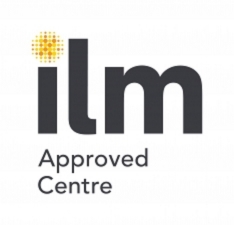ILM Level 7 Certificate in Strategic Leadership and Management Course Outline
Total Credit Value – 21
Total Guided Learning Hours – 39
Unit 8618-601: Developing Personal Effectiveness and Impact
Credit Value – 6
Guided Learning Hours - 14
Module 1: Apply the Meta Skills Required for an Effective Manager
- Communication Skills and Their Use within the Management Role
- Introduction to Meta Skills
- Communications Skills in Management Role
- Effective Use of Communication Skills at Internal and External Level
- Assess Own Skills in Critical Thinking and Its Relevance to Problem Solving
- Critical thinking to analyse all available facts, evidence, observations and arguments
- Theories of critical thinking Like bounded rationality
- Different Critical thinking skills
- 3C’s of Complex Problem Solving
- Compare and Creative Thinking Tools/Techniques
- Creative Thinking Models
- Creative Tools/Techniques
- Produce an Action Plan
- Peer Learning
- Action Sets
- Reflective Practice
- Research
- Webinars
Module 2: Leader Behaviours within an Organisation
- Evaluate Models of Continuous Development and Their Importance
- Introduction to Continuous Development
- Continuous Development Models: Peer, Collaborative, and Experiential
- Importance of Continuous Learning at Management Level
- Analyse the Characteristics of a Self-Aware Leader
- Characteristics of Self-Aware Leader
- Ability to be Self-Aware and Understand Impact of Own Behaviours
- How They Apply to Own Behaviours?
- Evaluate Theories of Behaviours which Support Impression Management
- Introduction to Impression Management
- Models of Behaviours: Folkman’s, Lewin, and Goffman
Module 3: Apply Their Understanding of Crisis Management, Agility and Resilience
- Importance of Crisis Management
- Stages of Crisis Management
- Prevent Damage to Organisations Reputation
- Understand Factors That Led to Crisis
- Restore Calm and Stability
- Develop Adaptive Coping Strategies for Future Situations
- Critique Organisational Agility and Resilience
- Organisational Agility
- Organisational Resilience
- Personal Effectiveness and Preparedness
- Assessment of Personal Effectiveness and Preparedness for Crisis Management, Agility, and Resilience
- Produce an Action Plan to Develop Personal Effectiveness and Preparedness
- Setting SMART Action Plan
Unit 8618-609: Principles and Practices of Risk Management
Credit Value – 5
Guided Learning Hours - 10
Module 4: Importance of Risk Management, Analysis, and Control
- Evaluate the Benefits of Risk Management in the Workplace
- Introduction to Risk Management
- Benefits of Risk Management
- Potential Barriers to Risk Management in the Workplace
- Assess Own Organisation’s Risk Management Approach
- Evaluate Techniques Supporting the Identification and Analysis of Risk
- Analyse Control Strategies to Manage Risk
Module 5: Develop a Risk Management Plan
- Appraise Methods of Monitoring and Reporting Risk
- Analyse Contingency Planning and Crisis Management
- Create a Risk Management Plan for Identification and Mitigation of Risks
Unit 8618-703: Developing Strategic Leadership and Management Capability
Credit Value – 10
Guided Learning Hours - 15
Module 6: Senior Leadership and Management
- Introduction to Senior Leadership
- Analyse the Strategic Context of a Learner
- Identify the Espoused Strategic Leadership and Management Capabilities
- Evaluate the Congruence of Leadership and Management Actions
- How Organisational Culture Influences Leadership Styles?
- Aligning Leadership Practices with Organisational Values
- Managing the Dual Role of Operational Oversight and Strategic Direction
- Prioritising Actions that Drive Long-Term Success
- Role of Influence and Power in Leadership
- Developing Resilience and Agility in Leadership Practices
Module 7: Design an Investigation and Implementation Plan of Leadership and Management
- Investigation of Relevance to Leadership and Management with Data
- Developing Research Questions
- Alignment Between Research Objectives and Organisational Goals
- Formulate a Plan for the Leadership
- Aligning Leadership Plans with Organisational Vision
- Evaluate the Sources of Information and Development
- How They Might Inform the Investigation?
- Professional Development Plan
- Stakeholder Needs Analysis
- Evaluation of Information Presented
Module 8: Implement and Evaluate the Results of the Investigation
- Impact of Professional Network on Thinking with Regard to Leadership
- Evaluate the Impact of the Implementation of Plan
- Key Performance Indicators (KPIs) for Evaluating the Success of Leadership
- Identifying Factors Impacting the Success or Failure of Implementation Efforts
- Using Stakeholder Feedback to Refine Leadership Approaches
- Communicate the Impact of the Investigation to Specified Stakeholders
- Adapting Leadership Strategies Based on Investigation Results
- Establishing a Framework for Ongoing Assessment
- Documenting and Reporting the Investigation Process








































 Back to course information
Back to course information




 If you wish to make any changes to your course, please
If you wish to make any changes to your course, please

